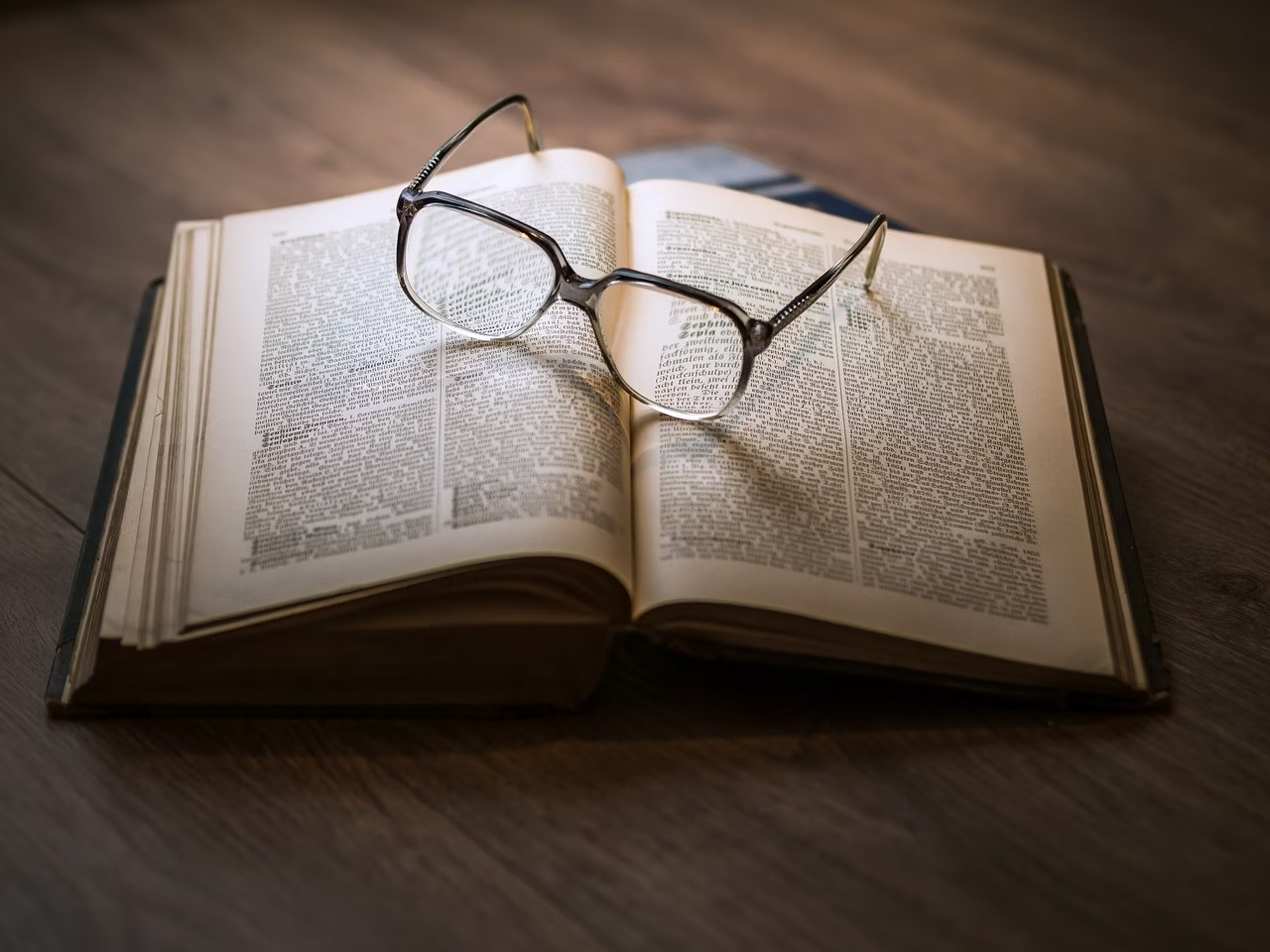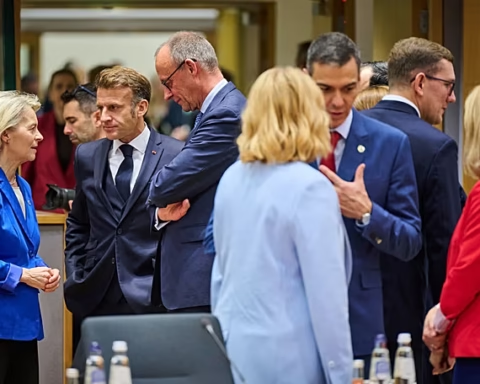May You Remain in the Light!
In our village—as in many other parts of Anatolia—when someone receives good news, people say “Gözün aydın!” which means, “May your eyes be filled with light.” If the news is especially joyful, the person responds with “Ay aydın içinde kalasın!”—a poetic way of saying, “May you remain in the moonlight,” thus sharing the joy and extending the same blessing to the other. It is a magnificent expression.
In Turkish, the word aydın, which originally meant light, moonlight, and brightness, began—after 1935—to be used to mean münevver: an enlightened or intellectual person. It’s a very apt transformation. If only our intellectuals were as graceful and worthy of our nation as the word itself suggests!
When I’m asked, “What is the most pressing issue in this country?” I have, for quite some time, answered without hesitation: “The state of our intellectuals.” The problems we endlessly discuss shrink to insignificance compared to our intellectual crisis. Neither our moral failings, nor our obsession with display and luxury, nor our deeply ingrained culture of violence, nor even the factors that weaken our democracy can match the seriousness and gravity of this issue.
Wherever we dig, the problem of the intellectual resurfaces. No matter which issue we examine, we could easily end our analysis with a sentence like: “Had our intellectuals fulfilled their responsibilities properly, we wouldn’t be in this situation.” For instance, let’s take a look at the topics our so-called intellectuals—those who claim the title for themselves—most often criticize or mock with amusement. From the sluggish progress of our nation’s democratic struggle, to our failure to build a strong civil society, to our deeply rooted leader-centered political psychology—if not solely responsible, it is these very individuals who are primarily to blame.
Yet, instead of recognizing their own role in these problems, some of them adopt an attitude of condescension toward the people, mocking the very figures whom society has elevated in hopes of solving its troubles—labeling them “dictators” and similar epithets, in an effort to undermine their credibility. They constantly repeat the phrase “knowledge is power,” but never speak of the system of tutelage (vesayet), nor do they see—nor want to see—that ignorance originates in themselves. They often talk about the “military and civilian intellectual elite,” yet it never crosses their minds that they themselves legitimize every form of oligarchic structure and authoritarian foundation.
If only they were not this way—if only they had the courage to endure hardship, to become torches for the nation at the cost of personal sacrifice! If only, instead of taking a stance against the people, confirming the saying “the hatched egg disdains its shell,” they had chosen to walk alongside them. The crisis of the intellectual has many roots; we did not arrive here overnight. These roots lie in our nation’s inability to respond meaningfully to the challenge of the West, and in our historical psyche. (We first expressed our thoughts on this issue under the pen name Deniz Gürsel in issues 28 and 29 of Türkiye Günlüğü, and later attempted to articulate them in many forums under the title “the organic intellectual of the nation.”)
Who is the Intellectual?
Who is this person we call “the intellectual,” and what makes them so important, so valuable, so indispensable? If we fail to define the intellectual accurately, all our subsequent assessments will also be flawed. The intellectual can most concisely be defined as the individual who, in one way or another, embodies what we might call “the highest collective intellectual output of a society.”
Two elements stand out in this definition: society and high intellectual output. Let’s elaborate: As individual human beings, we all possess a memory shaped by strong emotional bonds to our past, and we hold expectations for the future based on both that past and our present—expectations that manifest as concerns appearing on the horizon. All of this is processed through our personal mental capacity. Each of us is endowed, to varying degrees, with cognitive ability, but some are more fortunate in this regard. The more this intellectual capacity increases—by the very nature of human creation—the more pronounced and visible such qualities become.
The person we refer to as the intellectual possesses these attributes to a heightened degree, yet crucially, they activate them not merely for personal benefit, but on behalf of the society in which they live and to which they feel a sense of belonging. What makes someone an intellectual is their bond of fate with society and their ability to think not only for themselves but on behalf of the collective.
The intellectual differs from the philosopher who pursues thought to understand existence, and from the scientist who explores the determinations of material relations. The intellectual is closer to the politician—not necessarily by participating directly in politics, but by doing with theoretical reason what the politician does with practical reason.
In terms of personal identity, the intellectual resembles a political leader in some respects: they are both themselves and, by virtue of speaking for society and using their mental abilities and intuitions in its service, more than themselves.
The Organic Intellectual and the Organic Intellectual of the Nation
The intellectual is the highest collective intellectual output of a society. Yet, because their position is slightly ahead of society and partially detached from it, their connection to society is at once essential and extremely delicate. So delicate, in fact, that we often witness how easily intellectuals sever this bond. When an intellectual loses this guiding relationship with society—when they lose their organic character—they either become a narcissistic cynic who is indifferent to everyone but themselves, or a raging despot furious that society does not obey their prescriptions. Thus, based on whether their connection to society is intact or severed, we can divide intellectuals into two types: the organic and the non-organic.
As is well known, the term organic intellectual was coined by the Italian Marxist thinker Antonio Gramsci. By subverting and reinterpreting some of Karl Marx’s core ideas, Gramsci arrived at conclusions quite distinct from scholastic Marxism. He developed a theory with remarkable explanatory power regarding the relationship between the state, society, and intellectuals.
Gramsci was undoubtedly Marxist in his belief in a future communist society where class distinctions—and therefore the division between the state and civil society—would cease to exist. In this regard, his framework has no relevance to our context. However, the theoretical model he proposed for how to reach such a classless society departs so radically from Marx that it is practically detached from Marxism altogether. It is precisely this theoretical shift that creates a significant point of contact between us and Gramsci.
As is also well known, Karl Marx derived his understanding of civil society from Hegel. In Hegel’s view, civil society was a realm dominated by debauchery, poverty, and moral and physical decay—thus requiring intervention from a transcendent entity like the state. Marx inverted Hegel’s schema by prioritizing civil society over the state. For Marx, civil society was the economic base (infrastructure) where the totality of material relations that condition the state—the organized power of society in the superstructure—are situated. From this reinterpretation emerged the foundations of scholastic Marxism: the idea of class struggle and the Leninist model of violent revolution to overthrow the state.
Gramsci’s ideas on civil society, the state, and revolution, however, cannot be reconciled so easily with Marx’s views. Gramsci also built his theory of civil society from Hegel, but this time based on a different thesis: that the moral foundations of the state are embedded within civil society. From this premise, Gramsci argued that civil society is not an infrastructure but a superstructure. In doing so, he arrived at a conclusion fundamentally opposed to Marx. Moreover, he didn’t stop there: he broke Marxist theory at its core, vehemently rejecting the aphorism that “the base determines the superstructure.”
According to Gramsci, to move from the purely economic domain—the realm of selfishness and greed, i.e., the base—to the ethical-political sphere, i.e., the superstructure, is to move from the objective and necessary to the subjective and free. In other words, the superstructure becomes a space of initiative—an arena liberated from the oppressive and diminishing force of the base—offering the potential to shape a new ethical and political order. It is a transformative field capable of altering material conditions and even asserting primacy over them.
In Gramsci’s framework, although the superstructure holds a decisive position over the base, it is composed of two elements—one negative, the other positive. The negative component of the superstructure is the state (the political sphere), which functions as an instrument of dominance, coercion, and control. The positive component is civil society, the realm of hegemonic relationships based on consent.
In the domains of the economic base and political institutions, the bourgeoisie can more or less fully assert its dominance. However, within the civil realm, it is not always able to establish a complete political, moral, and ideological hegemony. In Gramsci’s terminology, the bourgeoisie—which seeks to legitimize its political power through ideology, to draw in social classes outside of itself within civil society, and to form a historical bloc with them—cannot always achieve this goal so easily.
This is because civil society, while serving as an incubator for ideologies that legitimize bourgeois power, is also a space of freedom. Even under the domination of the state, dissenting forces have the opportunity to develop a new ideology, to form a new historical bloc, and ultimately to create a new historical narrative. The key lies in breaking apart the dominant ideology and historical bloc upon which bourgeois hegemony depends, and instead forming—through civil society itself—a new worldview and a new historical bloc capable of influencing other classes. This would pave the way for a convergence of political and civil society in which the state becomes redundant and eventually dissolves.
According to Gramsci, the primary engine of this struggle for hegemony within civil society—that is, the struggle for political and cultural leadership—is the organic intellectuals: those who create and disseminate a new worldview. Standing in opposition to these agents of change are the bourgeois intellectuals, who represent the established order and produce knowledge to maintain its continuity.
As this struggle unfolds within civil society, and as a new way of life begins to emerge, the political society—the state—will be pushed back. It will gradually relinquish its political functions, which will be absorbed into civil society, eventually dissolving within it. Naturally, this process would also bring about transformations within the economic base toward a classless structure, in accordance with the influence of the new historical bloc. For the state to undergo such a process of dissolution, however, the struggle must be universal—reaching a global scale sufficient to dislodge state domination worldwide.
We, however, maintain a different view—one that asserts the existence of an organic, consent-based bond between the state and the nation. In order for the nation to transfer its own characteristics into the structure of the state, there must be intellectuals akin to those described in Gramsci’s framework. We refer to these figures as the organic intellectuals of the nation. Throughout history, wherever the state has existed, so have these individuals, sustaining the connection between state and nation.
When the horizons opened up by intellectuals who maintain organic ties to the nation are acknowledged by the state’s ruling elite, the artificial walls separating state and nation will be dismantled. A translucent veil will emerge—eliminating distance and making the divide invisible. Otherwise, the state will fail to establish legitimacy in the civil sphere, and will no longer be able to retain its monopoly on taxation and the use of force. Eventually, its social foundation and very existence will erode.
Now, setting aside the historical dimension for a moment and speaking only of our present context and our own nation: Today, the organic intellectuals of our nation are those who, by taking into account the modern production and function of knowledge, and by placing themselves in the position of the nation, strive to produce the nation’s worldview at the highest intellectual and political level, and to guide the functioning of the state accordingly.
Though we use a language that may suggest we are referring to individual persons, this is simply to make the definition more concrete. In truth, what we mean by the organic intellectual of the nation is not a group of specific individuals, but rather minds, mental structures, and those who shape them. Ultimately, the organic intellectuals of the nation are not just a group of intellectuals. It is the elements within intellectuals that correspond to the traditions embodied by the nation that constitute their organic quality.
The Intellectual’s Relationship with Power and Politics
At this point, we must further clarify the definition of the intellectual, particularly in terms of their relationship with the state and political power. The intellectual is someone who engages in the pursuit of thought for the sake of the public good and individual freedom—including their own. They are neither a chronicler of events, nor an ideologue who earns a living as a functionary of the state.
An intellectual must always maintain a critical distance from power; otherwise, they become indistinguishable from a court historian or a bureaucratic ideologue who tries to legitimize the actions of those in power. Especially if they personally benefit from the ruling regime—if their livelihood and interests are tied to it—their thoughts lose much of their validity.
As Kant aptly put it, the intellectual’s relationship with political power should be nothing more than a “distant hello”; their paths must never completely converge. The intellectual must express their ideas freely and fearlessly within an open environment, and power should implement those ideas—provided they are worthy of approval. Otherwise, the force of power begins to corrode the intellectual faculty of reason itself. An intellectual who has tasted the allure of power may start to view their former life as insignificant and may sink to the point of sacrificing everything just to continue enjoying the seduction of power.
But we must pause here. While a critical distance between the intellectual and power is certainly essential, with modernity the scope of this issue has expanded—what we now face is the broader relationship between the intellectual and politics. In modern democracies, politics is a human activity to which no one—least of all the intellectual—can remain indifferent. Politics is the way we defend ourselves, our society, and our values. In this sense, every intellectual is obligated to engage in politics. Indeed, political engagement is implicit in the very definition of the intellectual.
This is what separates the intellectual from the merely literate individual, or from the scientist who avoids all contact with real-world issues. The intellectual suffers alongside society; they even perceive the pains society itself has not yet recognized—and strive to warn, enlighten, and guide society accordingly. In this sense, the intellectual becomes a kind of metapolitical figure, one who transcends conventional politics.
So, the real question is this: What position should the intellectual take when the political movement they have supported gains power—when their ideas become the ruling ideas? The answer is this: Even after their ideas come to power, the intellectual must continue to labor for their implementation—but while keeping a critical distance from government, and always wielding the whip of critique. Under no circumstances should they enter into a relationship of mutual benefit with political power, nor become its salaried servant.
To some, the political role we ascribe to the intellectual—especially the concept of the organic intellectual of the nation—may seem excessive or unfamiliar. In our view, this sense of strangeness stems from a long-standing habit of defining the intellectual as someone alienated from the nation. As we have said above, this very phenomenon lies at the heart of why the problem of the intellectual is our most pressing issue today.
Let us not go into detail here, but the intellectual’s alienation from the nation began three hundred years ago as one of the consequences of our capitulation to the West’s challenge. For this reason, we’ve come to believe that it is somehow natural for the intellectual to pursue knowledge separate from the needs and demands of the nation. Similarly, we think the intellectual’s role is to serve the formation of the official ideology—and that their relationship with the nation need only extend as far as the dominant discourses of the intellectual agenda require. That agenda already contains instructions for what the intellectual is supposed to do: to belittle the people, as if that were the first condition of being enlightened; to speak of the virtue of resisting the stickiness of the ordinary, and to scorn the squalor of the thoughts and lifestyles of the masses.
Yet these very attitudes are what we describe as the intellectual’s break with the people—as the moment they cease to be organic.
The true organic intellectual of the nation, whom we have been describing, has nothing to do with such attitudes—apart from expressing their existence within the intellectual sphere. This intellectual is deeply aware that they are the product of a cultural and historical context that nourishes their thinking; they see themselves as a child of the nation, and therefore as part of it. They understand that knowledge is not a tool for power, but a light that illuminates existence; and that without understanding the tradition in which one lives, it is impossible to understand oneself. They pursue the revival of tradition—not through nostalgia, but through creative renewal—as an existential concern.
The organic intellectual’s loyalty to tradition is not ideological, but ontological. Tradition is the womb in which their view of existence was formed. This loyalty does not require hostility toward other traditions; rather, it favors dialogical contact with them—learning from others in order to expand the horizon of their own tradition. For this reason, the organic intellectual maintains a critical distance from tradition as well, and never abandons critique.
With these qualities, the organic intellectual of the nation is entirely engaged in a political struggle—for the quest to better understand the world always leads, in the end, to the pursuit of a better one.
The intellectual is the highest and most individual form of a community’s spirit at the intellectual level. In this sense, it is indeed possible to be the organic intellectual of any given class—but that is always a transient role. What truly matters is the position of the organic intellectual of the nation. For the organic intellectual of the nation strives to understand and transform the historical and cultural conditions that gave birth to their existence as part of a collective entity—and thus to reshape the world they live in.
The Intellectual and Spirituality
In the old Turkey, the official ideology suppressed all identities outside of what it sought to construct. It encouraged everyone to concern themselves solely with their professions and taught that intellectuals and scholars must never engage in politics or matters of spirituality. As discussed earlier, we were long accustomed to a definition of the intellectual as someone disconnected from the nation and alienated from tradition. Under this doctrine—often enforced with an undertone of threat—we were raised to believe that political preference could be expressed only through a vote at the ballot box, and that any engagement with spirituality had to be practiced in secrecy, like İsmet Pasha hiding in the shadows.
But just as insisting that politics should be left to elites or career representatives reveals a fundamental misunderstanding of democracy, believing that spirituality is nothing more than a private secret between God and the individual reflects a profound ignorance of human existence and religion itself. Therefore, as I conclude, I must address the intellectual’s relationship with spirituality—a necessity that is particular to our national experience.
The notion of religion as something withdrawn from all areas of life and reduced to a personal secret between the individual and the divine was also a defining characteristic of the old Turkey. Although a similar situation was once said to have existed in France, neither that nor the Enlightenment’s positivist view of religion resembles the faith lived in our tradition; instead, such notions evoke something more akin to a psychological deficiency. In all deep-rooted traditions, religious understanding by its very nature encompasses the entirety of life—and even death, and what lies beyond.
Every human being is born into a native language and a tradition. To try and escape these is a futile endeavor. Far from rejecting the tradition into which they were born, the intellectual can make the greatest contribution to others—and to humanity—precisely in proportion to how deeply they understand the human and spiritual inheritance embedded within it.
The organic intellectual of the nation sides with their own tradition—but this loyalty does not require hostility toward other traditions. On the contrary, it calls for dialogical engagement: learning from other traditions in order to broaden their own. Just as the intellectual is immersed in political life, they are also immersed in the spiritual sea of tradition. Yet as with politics, they maintain a relative critical distance from tradition as well. This distance is what makes the intellectual not a superior figure, but a guide—someone who bears responsibility rather than dominance.
The intellectual’s responsibility is this: to strive for deeper understanding, in pursuit of a better world.
Two prominent sociologists—Zygmunt Bauman, one of the greatest of our time, and David Lyon—published a conversation in a book titled Liquid Surveillance. Referring to Bauman, whose work he had often praised for its theological resonance, Lyon remarked:
“When I refer to your writings, I find myself wandering through the Christian tradition without needing to make excuses or feel any shame… There’s something in them reminiscent of the Kabbalistic notion of rashimo—something that stirs and encourages conscience, that pulls us in new directions, something that recalls the clarity and wisdom of the Scriptures… As a believer, the only thing I would add is that the New Testament teaches us to live the present as if the future shalom—peace and wholeness—has already arrived.”
Bauman, pleased with this reflection, responded:
“You emphasize living the present as though the future shalom has already come… That commandment, like those of both the Old and New Testaments, was addressed to the saints… But unfortunately, we cannot all be saints. Still, if there were no saints, we would not be human… They show us the way—they are the way.”
Why shouldn’t Muslim intellectuals today—or someday—be able to speak in such a consistent and profound manner?






